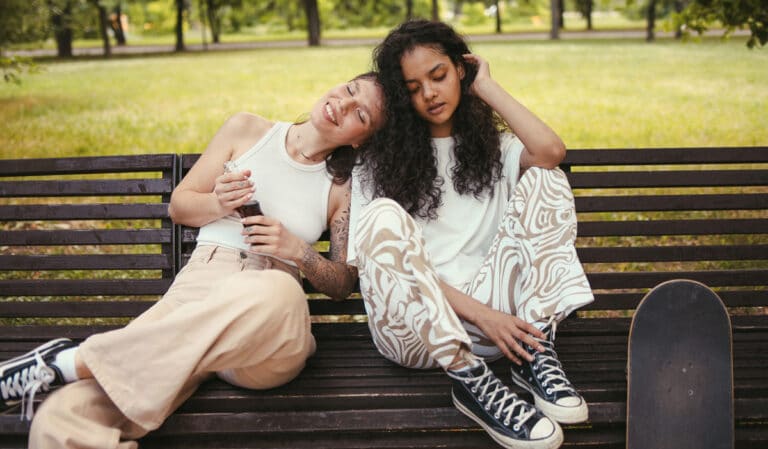No, you won’t find your soulmate on dating apps, new study reveals
Many of my friends have found their current partners on a dating app. Although unwilling to take the jump at first, I also had my fair share of Tinder dates. And even though dating apps never led to meaningful relationships in my case, my opinion on them slowly changed the more swiping I did. As a gen Zer, I accepted the fate of my generation—most of us would likely meet our long term partner on a dating app. And that’s perfectly fine by me.
Chances are, you probably think the same. Dating apps have become the norm—who chats up someone face to face without chatting them up real quick on an app first, right? Well, sorry to break it to you, but it turns out that we’ve been looking in the wrong place the whole time. According to a new study published in Social Psychological and Personality Science, most couples actually start out as friends.
“Our research reveals that relationship initiation studies published in popular journals and cited in popular textbooks overwhelmingly focus on romance that sparks between strangers and largely overlook romance that develops between friends. This limited focus might be justified if friends-first initiation was rare or undesirable, but our research reveals the opposite,” reads the research’s abstract.
The study looked at data gathered from over 1,900 Canadian university students and polled adults about their romantic relationships. What researchers found was that two-thirds of couples were platonic friends before they fell in love. In other words, they did not meet on Hinge and immediately started shagging. Among participants in their 20s and queer people, the rate was even higher. Apparently, 85 per cent of queer couples started out as friends. And while the bulk of this research was done in Canada, dating culture in the US is pretty similar, so this feels revealing across the board. When it comes to the UK, I’ll let you make up your own mind.
Before you start panicking and decide to go through a mental catalogue of all your friends, let me help you sort through them more rapidly. Among college-aged participants, the study also found that most were friends for between one and two years before things got romantic. Participants also reported that they didn’t secretly initiate a relationship with their now-partner with the intention of dating them. So don’t go and try to single out your one pal you secretly find hot because this is not what we’re talking about here.
These new findings clearly go against what we’ve all been fed since the rise of dating apps—that gen Zers and millennials nowadays will find the love of their life online. If, like me, you’re still unsure who to trust—I mean, come on, even Stanford University said so—in an article for Mic, Tracey Anne Duncan found the main reason behind this romantic bias.
“These Canadian researchers also looked at previous studies on how romantic couples meet and found that 75% of those studies centered around couples that were created in some sparky moment with a stranger. Only 8% of the studies they looked at focused on the friend-to-partner pipeline. Basically, it’s possible that science and the media haven’t reported that most couples are friends first because we simply overlooked the possibility. Guilty as charged,” she explained.
This research suggests that, although we feel confident that we know why and how people choose partners, become a couple and fall in love, we simply don’t. What we do have a good understanding of is how strangers become attracted to each other and start dating—that’s very different from actually building a long term relationship.
“Our research suggests that the lines between friendship and romance are blurry and I think that forces us to rethink our assumptions about what makes a good friendship but also what makes a good romantic relationship,” lead author Danu Anthony Stinson, a psychology professor at the University of Victoria, Canada, told EurekAlert!.
Now, what should you do about it? Not much—if you’re ready to settle down, just keep your mind open and your dating apps closed.






